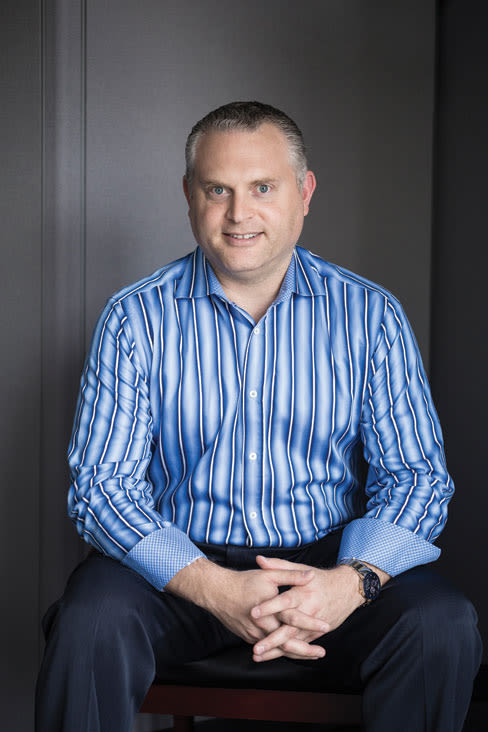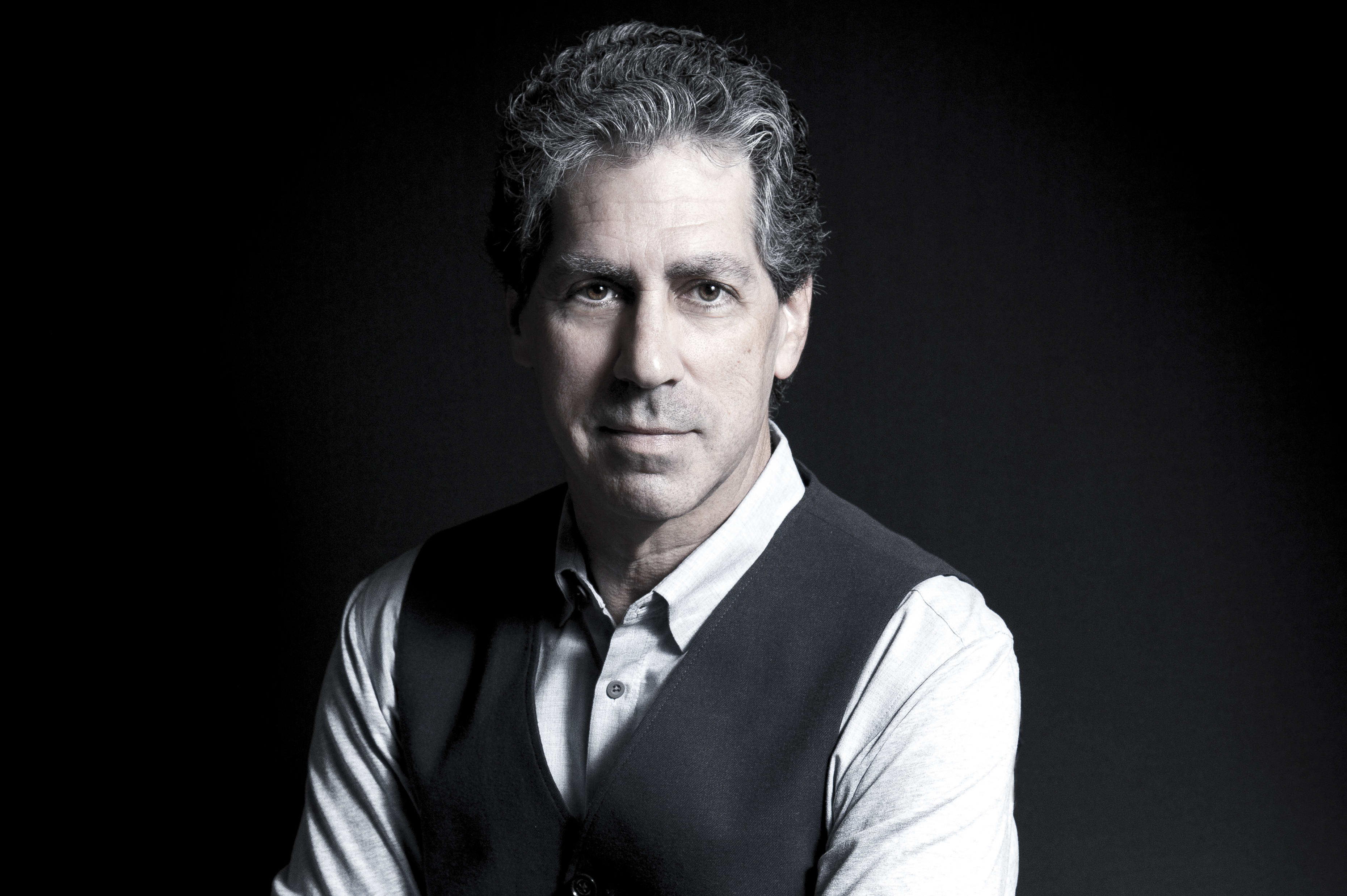Rapid Pathogen Screening CEO Robert Sambursky Shares His Path to Success

Saying Robert Sambursky was destined to become an ophthalmologist might be an understatement.
His father, grandfather and brother were all successful eye doctors, and the family expected him to follow suit. But early on his family noticed something else in Sambursky: an entrepreneurial spirit. In junior high, he made money collecting and selling baseball cards, first to friends and then professionally at sports card and memorabilia shows. So should he choose business instead of medicine, they wondered?
As it turns out, he chose both. Sambursky, now 44, became an ophthalmologist and parlayed that expertise into a fast-growing medical testing company, Rapid Pathogen Screening Inc. (RPS), based in Lakewood Ranch. He started the concept for the business with his brother and father in 1999 in Binghamton, N.Y., and incorporated in 2004 in Philadelphia. Sambursky moved to Sarasota in 2005 and established the company in Lakewood Ranch in 2008. He now serves as chairman and CEO.
RPS manufactures and sells several products that some experts say are transforming the eye care field. AdenoPlus allows detection of the most common viral form of conjunctivitis, or pink eye, and InflammaDry detects dry eye disease. A third product, FebriDx, can test for an immune response to respiratory infections and whether the infections are viral or bacterial, though it is only available in Europe and not yet approved by the U.S. Food and Drug Administration. The tests are quick and accurate and can be done in doctors’ offices instead of labs.
The technology at the heart of RPS products—testing strips that react to blood or eye fluid (tears) —has potential applications across other health care fields, which has helped attract $83 million in investments. Its staff has grown from a handful of employees in 2005 to nearly 70 today.
It can take years to achieve profitability in the medical diagnostic field after investing tens of millions for research and development, manufacturing, clinical trials and regulatory approval. RPS’s tests are fairly inexpensive at $10 to $12 each, and doctors use them once and throw them out (think home pregnancy tests), so tens of thousands of tests have to reach the market. That takes a huge sales force, which comprises half of RPS’ 70 employees. Sambursky doesn’t share revenue or sales figures, but he says just one client, CVS Minute Clinic, has RPS products in about 1,000 sites across the U.S.
“[Our date of turning a profit] has always been a moving target,” he says. “We’re about 85-90 percent of where we need to be. It looks like right at the end of 2016 or early 2017 we should become profitable.”
Sambursky describes himself as a fairly hands-on CEO, but he still finds time to see patients at Coastal Eye Institute offices in Lakewood Ranch and Bradenton about 12 hours a week. Remaining a practicing clinician has been helpful in running RPS. He remains close to those who use his products, and the process of diagnosing a patient and forming a plan for care can be analogous to tackling problems in business. “It’s actually a perfect design for me,” he says. “The truth is, I love being a doctor and I love helping patients. At the same time, I actually think that skill set is making me better at what I do in business.”
Sambursky hails from an upper-middle-class family in upstate New York. A biology degree from Brown University led to medical school at Boston University.
On one visit home to New York, Sambursky’s father introduced him to the CEO of a U.S. subsidiary of a German biotech company, Securetec Detektions-Systeme AG, which produced a novel test that could detect illicit drugs in human sweat. Sambursky discussed the technology with his ophthalmologist brother and father, and the family immediately saw the potential applications in their field.
In 1999, the Samburskys formally partnered with the German company to produce what would eventually become AdenoPlus. The German firm manufactured the products; Sambursky’s brother and father paid for the clinical trials and regulatory testing while Sambursky worked with the FDA and essentially developed the prototypes during his medical school residency.
After a proof of concept, Sambursky approached family, friends and some attending physicians and residents of his hospital for investments. He raised about $3 million, which carried the company through additional clinical trials and further product development.
Then they were ready to establish a company.
Sambursky says the frigid weather and sluggish economy of his hometown would have made it hard to attract employees and set up the infrastructure for a biotech company. His parents owned a home in West Palm Beach, so he knew the economy and environment in Florida could work. He still needed a day job as an ophthalmologist, but any practice that hired him needed to allow some flexibility for him to work on the business. Manatee Sarasota Eye Clinic, now Coastal Eye Institute, fit the bill.
“It couldn’t have turned out better,” he says. “The quality of life [in Sarasota] is unparalleled, and there’s a tremendous amount of access to philanthropy and retired biotech and medical professionals who are eager to help or consult. It turned out to be a very special place and made recruiting people 1,000 times easier.”
Eventually, the company moved into offices in Lakewood Ranch, on Delainey Court near State College of Florida. The company has expanded from one office “pod” to three, including a Biosafety Level 2 Lab. Sambursky says he’s had to recruit some top executives from outside of Sarasota, but many employees have been hired locally.
Sambursky, as president and chief medical officer, continued to raise funds from investors—mostly angels and private equity firms—and hired a CEO to help set up the company and corporate structure. The company bought out the German firm in 2008 and consolidated the entire product development and marketing efforts in Sarasota. A second CEO resigned in 2012, and the board of directors named Sambursky CEO.
Sambursky admits it can occasionally be difficult to give up the autonomy he has in making decisions as a physician. “I have to step back and empower the team if we are going to grow as a company. There’s not enough me to go around,” he says.
Dealing with employees has also been a challenge, particularly knowing when to let someone go. “I made the mistake of keeping people around longer than I should have. I thought I was being supportive,” he says. “But I realized is that the other employees rally in support of the removal of someone who is not productive. They want to feel like you are trying to create the best possible team.”
Craig Mallitz, president of Sarasota-based Mallitz Investment Group, which in 2013 invested more than $7 million in RPS, says Sambursky has helped shape a young company into a stable corporation. That eases the minds of investors who could be concerned with a physician leading a 70-employee business.
“That was certainly a consideration with us,” Mallitz says. “It was a long due-diligence process, but we got a chance to know him and he exhibited a strong knowledge of the business. Rob is very detailed. There’s rarely a time when a subject comes up and he doesn’t already have a smart answer.”
Dr. Herbert Kaufman, a widely published ophthalmologist and director of research at the Louisiana State University Eye Center, describes Sambursky as a “really unusual guy”—a thought leader in ophthalmology who can still bring practical medical products to market.
Kaufman says RPS is already changing medical practice around the world, as its in-office tests can instantly determine whether some eye infections are bacterial or viral, thereby reducing potential dangerous overuse of antibiotics.
Sambursky says the recession was the young company’s biggest test, as he was forced to slash the sales force when investments dried up in 2009. Various FDA testing and regulatory delays also threatened to derail the company many times.
“Oftentimes I felt like we were one step away from the end of the company,” he says. “I’ve been able to fortunately link a whole series of people together and educate them on the technology."
What dug him out of every hole is his conviction that RPS is special. “That enthusiasm has allowed me to bring in investors or influence people, so when we thought it would be impossible to make a deal or change the minds of the FDA, we’ve been able to do it—sometimes right at the last minute. I never stop battling,” he says. “As far as I’m concerned, it’s never over.”
Sambursky’s Rx for success
Lead by example.
Don't ask your investors or your team to do anything you can't stand behind or are not willing to do yourself.
Don't be undercapitalized.
Programs always cost more and take longer than originally forecasted.
Give employees a voice.
A flat organization with a positive corporate culture fuels productivity.
Not everyone will evolve.
With a rapidly growing company, some people who may have been a great fit at a specific inflection point may not remain the right person over time.
Integrity is everything.
Executives have to make tough choices, but in the end no one will fault you if you fight for your company and your team.
You can't do it all yourself
It’s important to build a strong team around you and to empower them, even if initially it feels like it is slowing you down. In the long run, the team's growth and support will catalyze your ability to be more effective.



